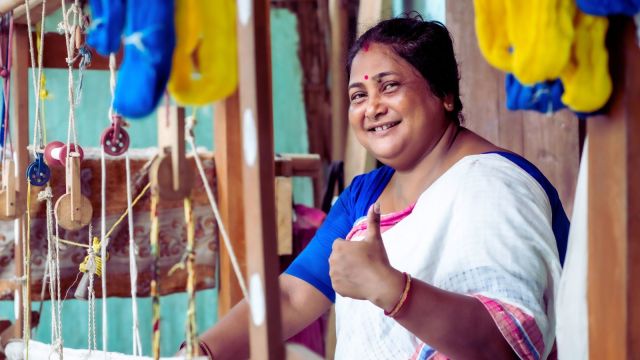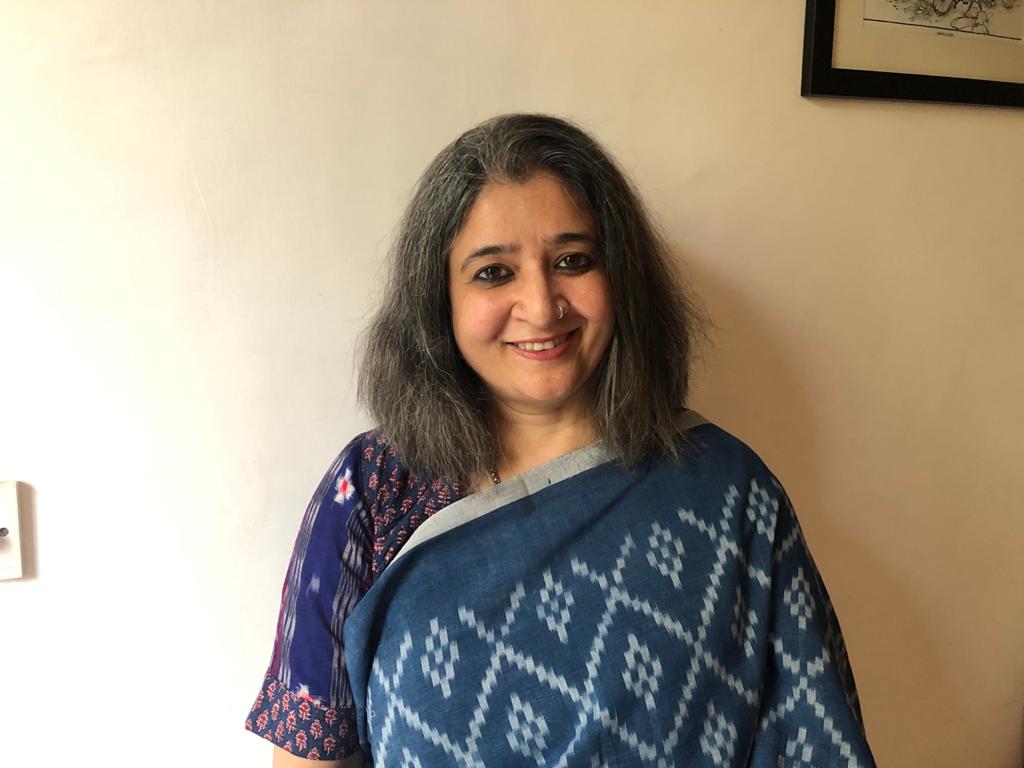
Understanding that market forces could further distance those away from technology, Microsoft partnered with organisations like Collective Good Foundation and Tata Trusts to create specific programmes. “We had a conversation with the Collective Good Foundation to understand how we can focus on supporting small business owners to leverage technology, to reach the market, and to get access to a larger audience,” Dhasmana recollected.
A holistic approach
According to Dhasmana, the programmes take a holistic approach and address various aspects of a small business. She said that it began with basic skills training like teaching participants how to use tools like Microsoft Word and Excel. And, as their needs evolved, the programme included design education, financial literacy, and more recently, AI fluency.
“We started with basic digital skills. Then we realised they also needed an understanding of design. So, Tata Trusts created an entire programme around teaching them about design. Similarly, the Collective Good Foundation recognised the need for access to finance and developed a programme to address it,” Dhasmana noted.
 Manju Dhasmana said that AI tools have been helping women small business owners to create better designs and shorten the time taken to transform designs into finished products. (Express Image/Microsoft)
Manju Dhasmana said that AI tools have been helping women small business owners to create better designs and shorten the time taken to transform designs into finished products. (Express Image/Microsoft)
Dhasmana also shared the key benefits of AI integration in improving product presentation for women who were spearheading their small businesses. During the interaction, she spoke about a weaver named Jyotsna Kalita from Assam who was part of the programme. “When we started off, I remember this entire conversation, the pictures would be very grainy, right? And you can’t really make out when you are especially looking at textiles…what is it that you are really buying,” Dhasmana noted.
Dhasmana said that AI tools have been helping these women entrepreneurs create better designs, maintain a repository of designs and considerably shorten the time taken to transform designs into finished products. Moreover, AI-powered financial management systems have been instrumental in helping small business owners maintain financial records that can be essential in getting loans or other financial services.
Story continues below this ad
Nurturing sustainable revenue streams
Kalita was part of the Antaran Artisan Connect (AAC), a collaboration between Microsoft and Tata Trusts. She transformed her artistry into Alok Handlooms, a venture that was supported by AAC. “Gaining digital literacy has been transformative. This opportunity has given us exclusive access to the corporate gifting market, providing a stable revenue stream during difficult times and expanding our business into new market segments we would not have reached otherwise,” Kalita said.
Another participant, Rekha from Delhi’s Faridpuri, who mastered sewing and has been part of Microsoft’s Project Revive, recorded a hike in her monthly income after gaining digital literacy. “I struggled to meet my household expenses. However, after improving my skills and learning a few new techniques, they also helped me with money management. The money I saved allowed me to run my household more efficiently, and these improvements have helped me,” Rekha said.
Challenges faced
Even though numerous women are benefiting from these initiatives, the implementation of these projects was arduous. They faced several challenges, including limited access to the internet in rural areas, and other cultural barriers around women and technology. However, to address these concerns, Microsoft and its partners created offline tools and designed programmes to empower women.
“When it comes to small women business owners, I found the challenges in urban areas as much as in rural areas,” Dhasmana said. “One of the challenges that we consistently face is access to the internet because a lot of these things depend on broadband availability. So we did these [conducted programmes] by creating tools which could run offline,” she added.
Story continues below this ad
Launched in 2022, Microsoft’s Women In Digital Business aims to help over 30,000 women entrepreneurs with digital competencies to sustain themselves. The initiative also conducted a skill-gap analysis and utilised digital skill sets that were derived from Microsoft’s resources.



 Manju Dhasmana said that AI tools have been helping women small business owners to create better designs and shorten the time taken to transform designs into finished products. (Express Image/Microsoft)
Manju Dhasmana said that AI tools have been helping women small business owners to create better designs and shorten the time taken to transform designs into finished products. (Express Image/Microsoft)





